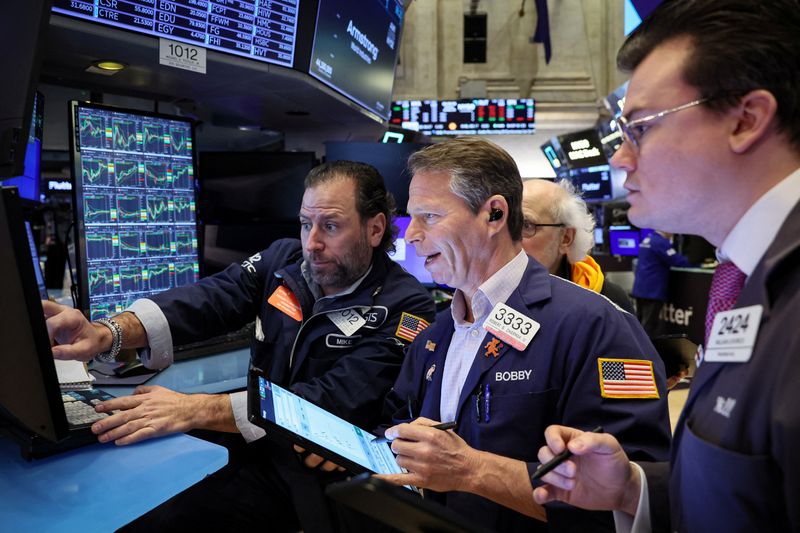By Lewis Krauskopf
NEW YORK (Reuters) - A strong economic outlook is helping U.S. stocks weather a rise in Treasury yields, though that could change if factors such as tighter monetary policy drive yields higher or if they move up too fast, Goldman Sachs (NYSE:GS) strategists said.
The S&P 500 and 10-year Treasury yield had been negatively correlated - meaning they have moved in opposite directions - since long-term yields began rising last July, Goldman equity strategists led by David Kostin said in their latest weekly kickstart note.
The S&P 500 sold off sharply over that period as yields marched to a 16-year high in October, making stocks relatively less attractive. Equities staged a swift rebound when yields, which move inversely to bond prices, tumbled in the final months of the year.
In 2024, however, stocks have hit record highs even as the 10-year yield has risen about 30 basis points to 4.2%.
One reason for stocks' resilience is the improving economic outlook, Goldman's strategists said.
Since 1990, the S&P 500 has generated a median monthly return of 1.3% when the yield curve steepens, their data showed.
Returns have been substantially stronger when economic growth expectations are improving rather than weakening, regardless of whether the yield curve steepened or flattened, the strategists said.
"As investors worry less about the potential for Fed tightening, growth expectations should become a more important driver of yields, contributing to a less negative correlation between stocks and yields in 2024," they wrote.

In a separate note, Goldman's economists raised their fourth-quarter economic growth estimate to 2.4% from 2.1%.
Goldman forecasts the S&P 500 will end 2024 at 5,100, a gain of just over 4% from Friday's close. "However, if rates rise substantially from current levels because of shifts in Fed policy or the balance of Treasury supply and demand, equities will likely struggle," the strategists said. Moreover, equities will face pressure if Treasury yields rise more quickly than the recent pace, regardless of the reason, they said, noting that rates could be more volatile with the 2024 election.